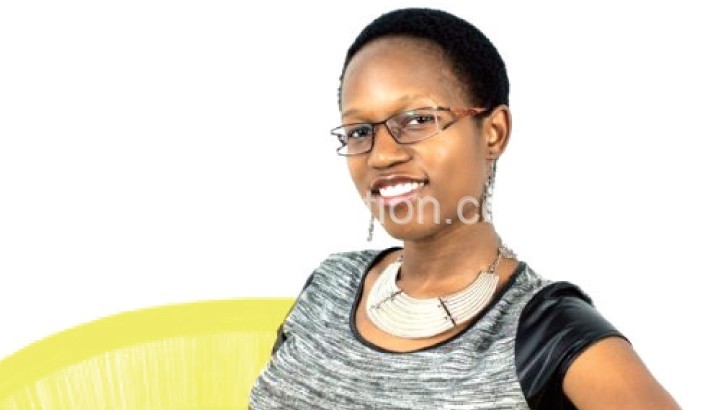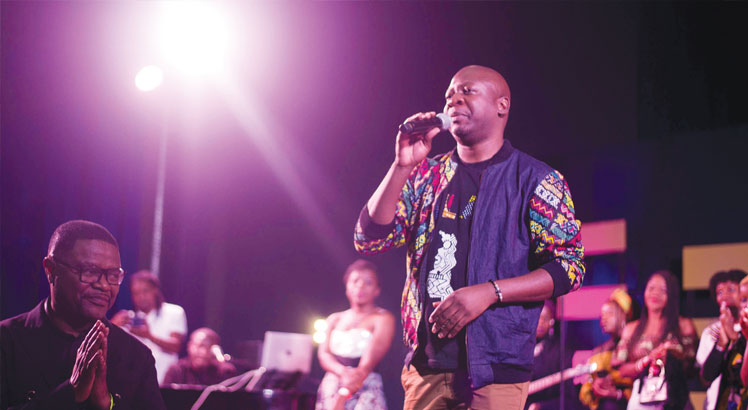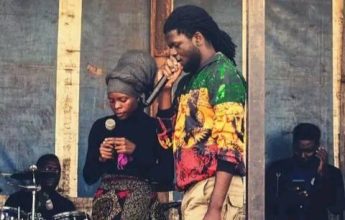Women feel they won’t be published
Malawi has many talented women writers but their works are not coming forth. Our reporter, AYAMI MKWANDA engages a female writer and literary critic, EKARI MBVUNDULA, to find out more about women writers in the country.

Why do we not see many Malawian women publishing books?
I think we don’t see enough writers in general getting published, at least not in fiction. Most new books I hear about are mostly non-fiction. That speaks to what the readers are buying.
I am not sure why we don’t see so many women writers in particular, all I can tell you is that from what I know, women can be shy to reveal their writing to the world, as they usually write from the heart. Personally, I get around that by packaging my feelings into fictional characters and expressing myself through them. Although, on the other hand, I honestly don’t think shyness is the issue. I have watched many female poets who express themselves very eloquently and bravely, sometimes hitting hot button societal issues. Perhaps, female writers are not writing for the same reason all Malawian writers aren’t publishing as much as they should be: we have a severely damaged publishing industry which began declining when we switched to multiparty democracy. Many don’t see immediate returns from the local publishing industry.
I am working on seeing it being revived. One of the main things I am doing to this end is setting up a creative writing workshop during the first weekend of June. Interested aspiring writers both male and female can find out more on www.ekariwrites.com (application deadline is May 19).
In the past three years, which women writers have published books?
Although I haven’t published in print yet, I have a short story on Amazon.com called Montague’s Last, and I have many more stories on my blog www.ekariwrites.com especially from winning second place in last year’s Nigerian based The Writer competition. I have a new short story coming out this month on omenana.com and I am working on a science fiction novel based in a future Malawi.
There’s a writer Upile Chisala, who has published 2 poetry books within the past two years, the first titled Soft Magic, the second titled Nectar. There is also Tiseke Chilima who contributed a very good story titled Women are from Venusto the science fiction anthology Imagine Africa 500 curated in part by Shadreck Chikoti. She was the only female Malawian writer in the anthology. Otherwise, I haven’t personally heard of any others. If they have published I would like to hear about it, and I hope they make more noise. In this modern age, most stories are posted online rather than published in print, so maybe they are there.
Why is it important for women to write stories and publish them?
I think it is important for all Malawian writers to write and publish, because we need to see our own potential through the lens of literature, and to share our points of view with the rest of the world. Because there are so few women writers, it’s important that we should make our voices heard for the same reasons. That said, stories come in different forms, and I see a lot of female spoken word poets around. They are telling stories in other ways apart from print.
What challenges do women writers face in Malawi?
Since I haven’t done any research, I can’t say much about women writers in general, just what I have observed – I think our main challenge comes from the fact that women do not think of writing as something they could be doing, or maybe they believe they won’t be published. I would encourage female writers to show that they are writing. I really hope it isn’t down to laziness or lack of commitment. Prove me wrong, ladies!
The other challenges are obstacles to both male and female writers. I am still figuring out my own options with publishing, print and online, national and international. I haven’t yet cracked the code, but when writing in a fallen industry, you have to figure out a lot of things on your own, rather than a big time publisher taking care of everything. For Montague’s Last, I sourced my own cover artist and e-book editor, and to an extent, I enjoyed having that control over the process. However, there is a whole lot of experimenting, seeing what works and what doesn’t, because there is currently no working formula. This is true of my other writing colleagues, Shadreck Chikoti and Muthi Nhelma – on the other hand, they are doing something right because they have been nominated for the Nommo Awards, representing Malawi proudly.
If it is about the dying culture of reading that is discouraging women writers, why don’t they write stories that will have an international appeal?
It is a dilemma because I want to write for my people, stories that inspire Malawians. I don’t just write to sell books, I want to make a change in someone’s life. Fiction has the power to do that. And I would like to start at home. I am writing a novel which will hopefully appeal to both local and international readers, I don’t want to trade one for the other. My dream is that whatever I write, I first and foremost get Malawians reading. If it means selling abroad to keep the business going, then so be it. But my focus is at home. One of the reasons JK Rowling is such an inspiration is that she got people who never read to pick up a thick book because she had written such a captivating story that they were helplessly drawn in. That’s what I aim to do.
What contributions can women writers make to this country?
I believe in the power of all types of writers making an impact, but to be specific to women writers, I believe women writers have the power to inspire other women and men, just for the fact that they are women who write. For me, writing has been such a part of my life from childhood that I don’t see it as anything special that I happened to be a woman too. I don’t always write female protagonists, because, as an author, I am invisible to the story, I will write whichever character I feel shapes the story best. However, if you are a woman who wants to bring focus on female issues, writing is a great way to do it.
Chisala’s work focuses on uplifting women of colour through short poems, helping them become more comfortable in their own skin. To someone who is feeling down, those words of encouragement can be the difference between life and death. Chilima tackles gender issues by creating a twisted future where gender separation is taken to the extreme, wrapping it in an action -packed sci-fi thriller, while making you think critically about these issues and how they apply to modern-day society. I write science fiction and fantasy, where I tackle a wide variety of philosophical issues, while aiming to inspire readers whatever their gender. I aim to help them escape for a few hours in an alternate world of my own invention, just as other writers (both male and female) have shown me their worlds through a mere few hundred pages. Stories can make us care about things in real life. Heroes on the page can inspire us to be heroes in the world.





